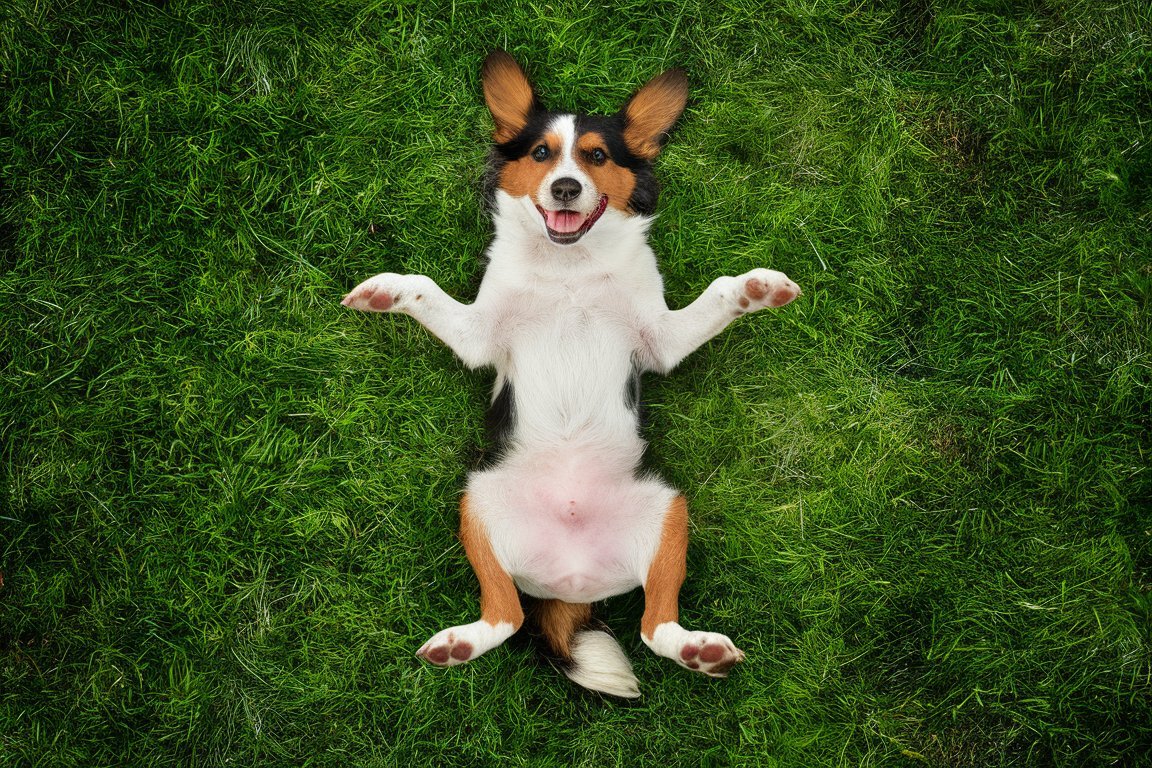My Dog Has Diarrhea but Is Acting Fine: What Should I Do?
Introduction
As a dog owner, nothing can be more alarming than discovering that your dog has diarrhea. It’s even more confusing when your dog seems perfectly fine otherwise—still full of energy, eager to play, and maintaining a healthy appetite. You might wonder, “Should I be worried?” or “Is there something wrong?”
The truth is, diarrhea in dogs is a fairly common issue. Just like in humans, it can be caused by a variety of factors, some of which are harmless while others might need more attention. In this article, we’ll dive deep into understanding why your dog might have diarrhea, what you should do about it, and when to seek veterinary care.
Understanding the Causes of Diarrhea in Dogs
Diarrhea in dogs can be caused by many things, ranging from something as simple as a sudden change in diet to more serious conditions like parasitic infections or inflammatory bowel disease (IBD). Here’s a closer look at some common causes:
1. Dietary Indiscretion
Dogs are naturally curious creatures, and they often explore the world through their mouths. Whether it’s a piece of leftover food from the trash or a plant in your backyard, dogs are known to eat things they shouldn’t. This can lead to what veterinarians call dietary indiscretion—one of the most common causes of diarrhea.
For instance, I remember the time my Labrador, Max, got into a bag of greasy potato chips that someone left on the counter. The next morning, I was greeted with a very unpleasant surprise on the kitchen floor, but Max was his usual playful self, unfazed by the upset stomach.
2. Food Sensitivities or Allergies
Another reason could be that your dog has developed a food sensitivity or allergy. If you’ve recently switched dog food brands or introduced new treats, this could trigger an upset stomach. Dogs can be allergic to certain proteins or grains in their food, leading to symptoms like diarrhea.
3. Stress or Anxiety
Believe it or not, dogs can also suffer from stress or anxiety, which can manifest as diarrhea. Events like moving to a new home, the introduction of a new pet, or even a change in routine can cause stress in dogs, leading to gastrointestinal issues.
4. Parasites
Parasites such as giardia or hookworms can also cause diarrhea in dogs. These tiny invaders can be picked up from contaminated water, soil, or other animals. While your dog might seem fine on the outside, these parasites can wreak havoc on their digestive system.
5. Bacterial or Viral Infections
In some cases, diarrhea might be caused by bacterial infections like salmonella or E. coli, or viral infections such as parvovirus. These infections can be more serious and often require prompt veterinary attention.
6. Medications
If your dog is on medication, particularly antibiotics, diarrhea could be a side effect. While antibiotics are essential for fighting infections, they can sometimes disrupt the balance of good bacteria in your dog’s gut, leading to gastrointestinal upset.
Step-by-Step Guide: What to Do If Your Dog Has Diarrhea but Is Acting Fine
Now that we understand some common causes, let’s talk about what you can do if your dog is experiencing diarrhea but seems otherwise healthy.
Step 1: Withhold Food for 12-24 Hours
One of the first things you should do is withhold food for about 12-24 hours. This allows your dog’s gastrointestinal system to rest and recover. Don’t worry; dogs can safely fast for a day without any negative effects, especially if they’re still drinking water and are otherwise healthy.
Note: Do not withhold water during this period. It’s crucial to keep your dog hydrated, especially if they’re losing fluids through diarrhea.
Step 2: Introduce a Bland Diet
After the fasting period, you can slowly reintroduce food in the form of a bland diet. A typical bland diet for dogs includes:
- Boiled white rice
- Boiled chicken (skinless and boneless)
- Plain, unsweetened pumpkin
Start with small portions and gradually increase the amount over a few days. This helps your dog’s digestive system ease back into normal function without causing further irritation.
Step 3: Monitor Your Dog Closely
While your dog might seem fine, it’s important to monitor them closely during this period. Look out for any changes in behavior, worsening of diarrhea, or other symptoms like vomiting, lethargy, or loss of appetite.
Step 4: Gradually Transition Back to Regular Food
Once your dog’s stool starts to firm up, you can slowly transition back to their regular food. This should be done gradually over a few days to prevent any sudden shocks to their digestive system.
Step 5: Consider Over-the-Counter Solutions
If your dog’s diarrhea persists, but they’re still acting fine, you might consider over-the-counter remedies like probiotics or diarrhea relief medications for dogs. These can help restore the balance of good bacteria in your dog’s gut and firm up their stool.
Step 6: When to Contact Your Vet
While mild diarrhea often resolves on its own, there are certain situations where you should definitely contact your vet:
- Diarrhea lasting more than 48 hours
- Presence of blood in the stool
- Vomiting alongside diarrhea
- Signs of dehydration (e.g., dry gums, lethargy)
- Puppies, senior dogs, or dogs with pre-existing health conditions
If you notice any of these symptoms, it’s best to get your dog checked out by a vet to rule out any serious underlying conditions.
Prevention Tips
Preventing diarrhea in dogs is often easier than dealing with it. Here are a few tips to help keep your dog’s digestive system healthy:
- Stick to a consistent diet: Avoid sudden changes in your dog’s food, and be mindful of what they’re eating.
- Keep an eye on what they’re munching on: Be cautious about what your dog has access to, especially in the yard or when out for walks.
- Ensure regular vet check-ups: Regular veterinary visits can help catch any potential health issues before they become a problem.
- Use preventive treatments: Keep up with regular parasite prevention treatments, especially if your dog spends a lot of time outdoors.
Conclusion
Diarrhea in dogs can be worrying, but if your dog is otherwise acting fine, there’s often no need to panic. With the right care and attention, most cases of mild diarrhea resolve quickly. However, it’s important to stay vigilant and know when to seek veterinary help.
If you’re ever in doubt, it’s always a good idea to consult with your vet. They can provide personalized advice and treatment options tailored to your dog’s specific needs.
Remember, a healthy dog is a happy dog, and by taking the right steps, you can ensure that your furry friend stays in tip-top shape!


One Reply to “My Dog has Diarrhea but is acting fine”